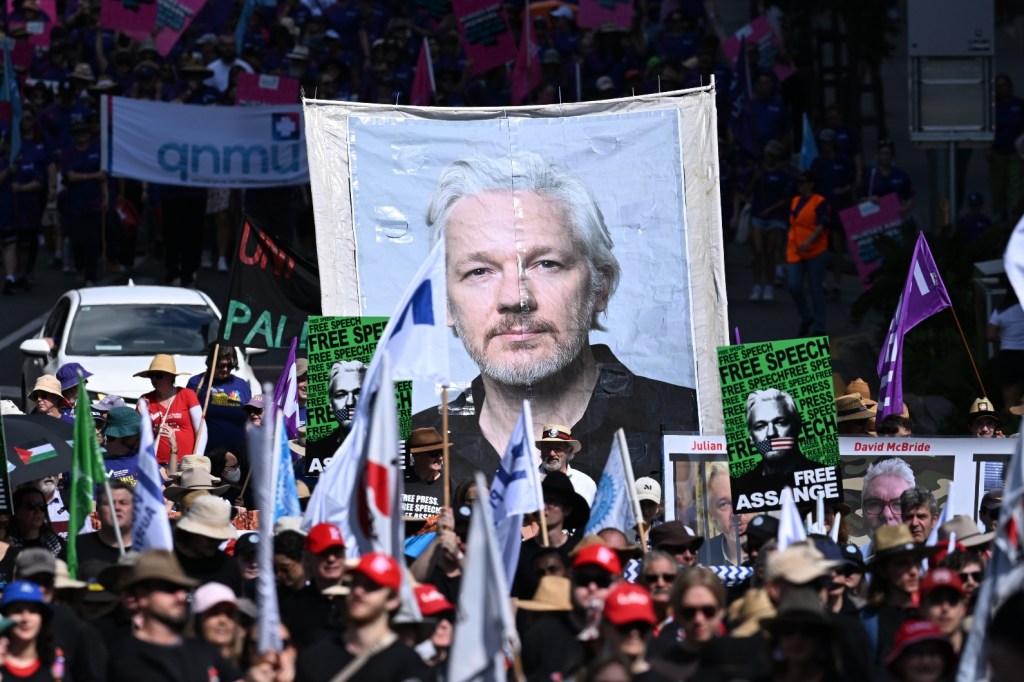
Later today, we will see another step in the prosecution of Julian Assange when his lawyers return to court to make their final submissions in an attempt to be allowed to appeal a decision to extradite him to the US over what media reports variously describe as “espionage charges” or an attack on a “free press”.
At the very least, this case demonstrates why we need broad whistleblower laws.
Most commentators in Australia reckon it’s time Assange was released. Our prime minister doesn’t think much of his actions but argues it’s time the saga was brought to an end. His wife Stella, whom he met and married while holed up in the Ecuadorian Embassy, says Assange’s health is failing and extradition will kill him. The late John Pilger — journalist cum political activist — claimed it would kill investigative journalism.
Given Assange champions the need for truth, it’s ironic that the facts surrounding his prosecution are seldom accurately reported.
There are a range of charges flowing from the Wikileaks publication of hundreds of thousands of classified military files — no doubt some are ambit claims or are there to obscure the main game. Assange is also alleged to have aided and abetted former US soldier Chelsea Manning, who was convicted of stealing the files. That’s a criminal offence here and in most jurisdictions.
So far, Assange has not denied working with Manning. When I queried his high-profile celebrity lawyer, Jennifer Robinson, at a public forum she dodged the question — claiming he only did what journalists do every day.
It’s said that Assange attempted to help Manning break a code that would have allowed her to access more sensitive material. Some say that was not the primary motive and that it was a failed exercise in any case. However, attempting but failing is not generally an arguable defence to a conspiracy charge. Presumably, the US prosecutors have other evidence that will only come out if the case goes to court.
The underlying problem for Assange is that helping a source break the law crosses a line. It’s not journalism, and it’s arguably not protected under the US Constitution’s ‘First Amendment’, or any similar provision in other countries, including Australia.
If Assange is prevented from appealing his extradition, and either way, unless he maintains innocence on the aiding and abetting count, it would make sense to plead guilty and do a deal for his immediate release. He’s already spent close to the maximum five-year prison term for the offence locked up in a British high-security prison. A few months ago, the US ambassador hinted publicly that a plea bargain would be entertained.
If Assange is as unwell, as his wife, his brother, and his lawyer claim, it’s arguable whether or not he’s even fit to give his lawyers informed instructions these days. Perhaps it’s time a decision was made on his behalf. He’s made his point. He suffered enough. Surely, it’s time he was released.
While Assange has been charged over the publication of the material Manning stole, nobody has been prevented from accessing it, publishing it, or reporting on its contents. No mainstream media organisations have been prosecuted. Even Wikileaks has not been pursued.
In an analogous case — the publication of similar material known as the Pentagon Papers — the US Supreme Court ruled that the government could not prevent their publication. On this basis, Assange has a strong defence on all but the aiding and abetting charge.
Assange has become a cause célèbre for people campaigning against what they claim — legitimately in many cases — is governments around the world restricting free speech to cover up wrongdoing. That’s a concern here in Australia and one that is regularly raised by the journalists’ union — the Media, Entertainment and Arts Alliance — and civil liberties organisations.
But rather than attempting to curtail media reporting, it looks like the pursuit of Julian Assange is more about putting the frighteners on future whistleblowers and anyone contemplating assisting them. On that basis, the threat to journalists is not that they will be prosecuted, but that their sources of information will dry up.
READ MORE:

